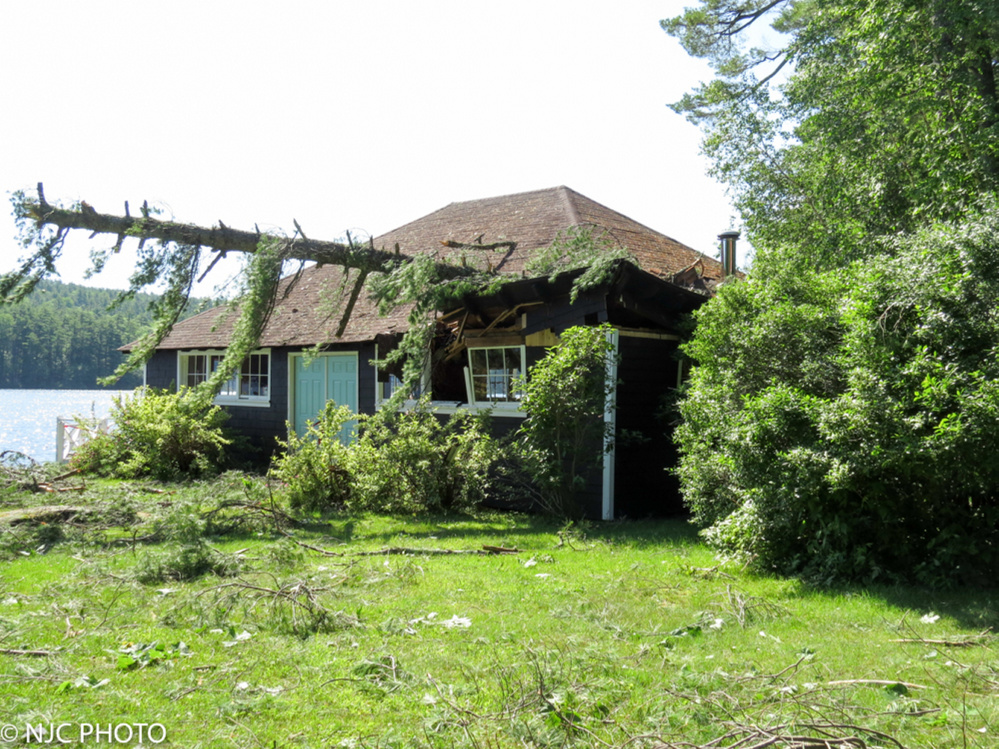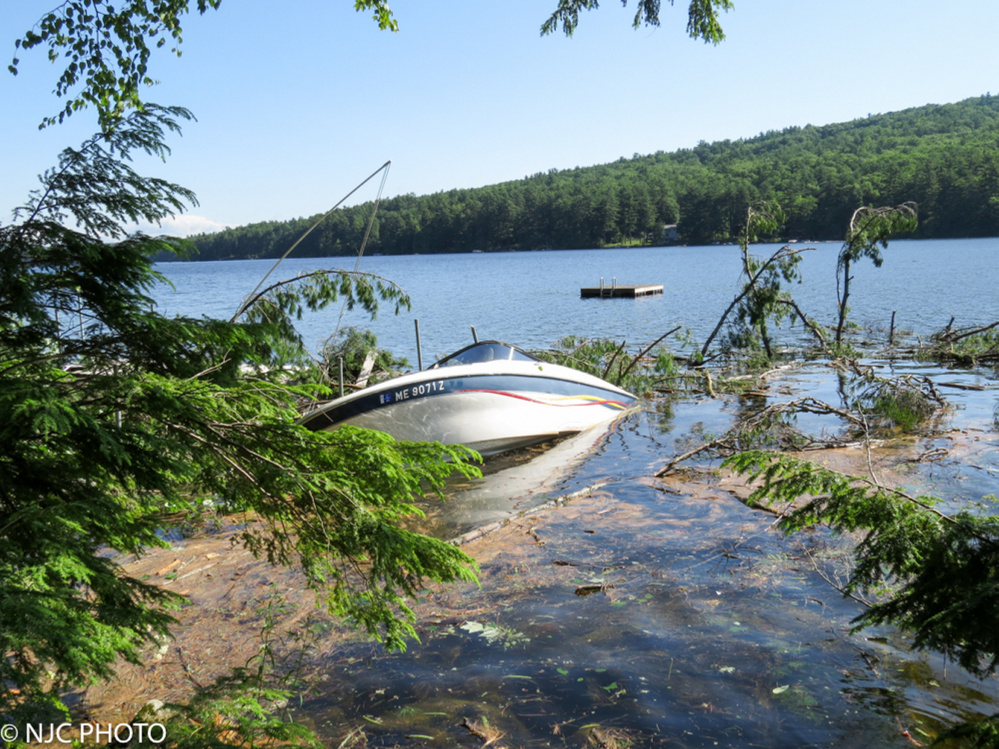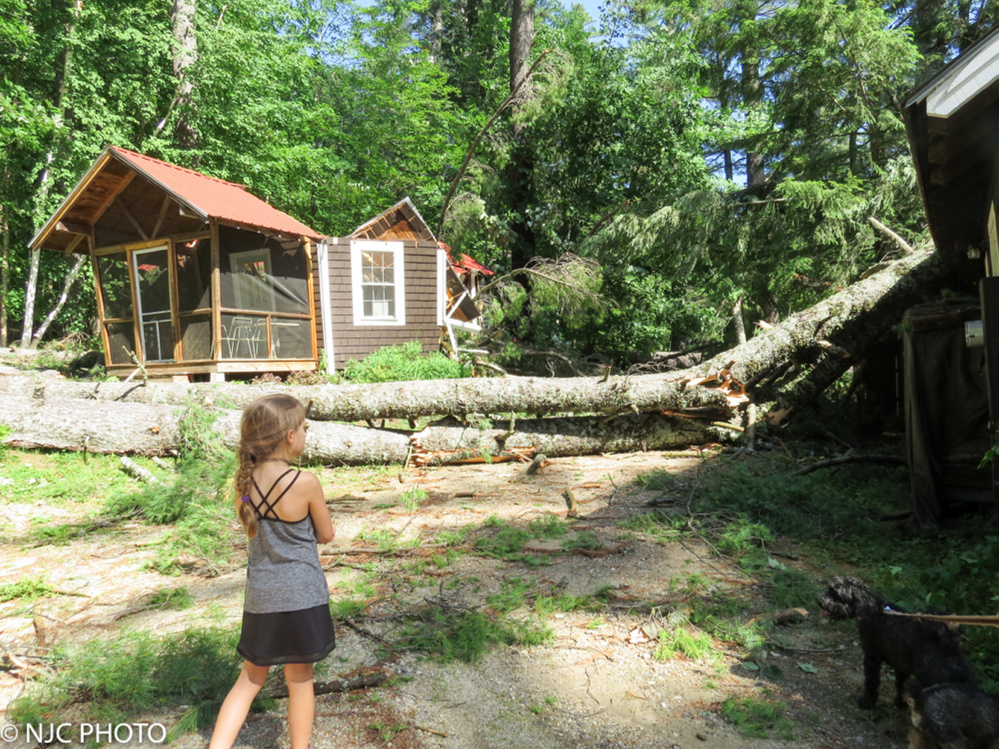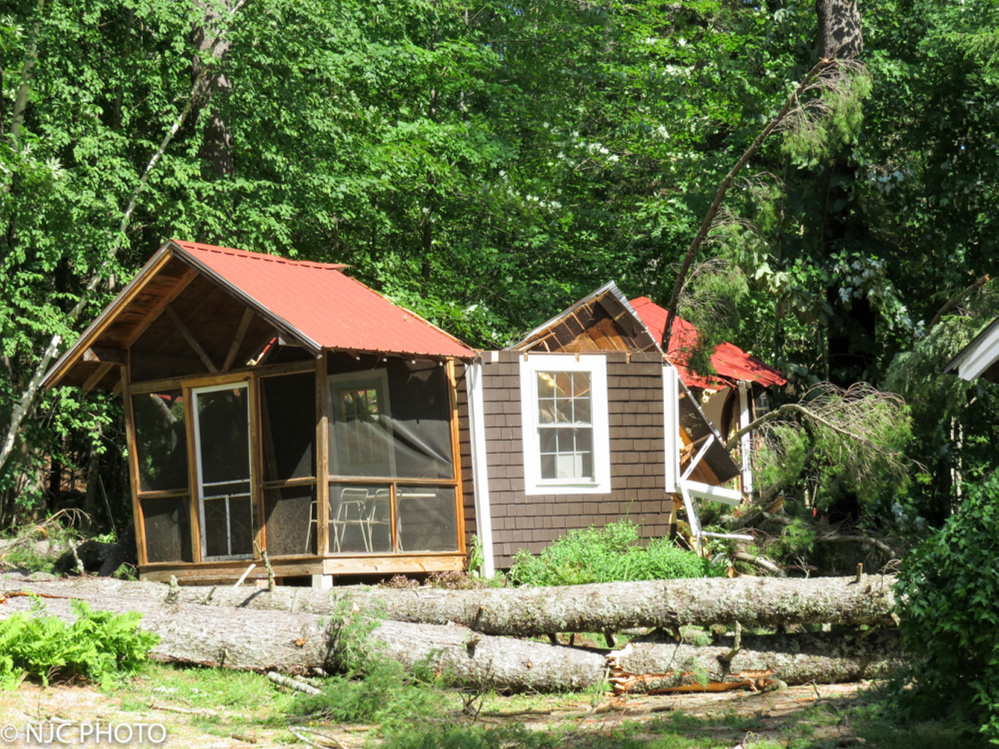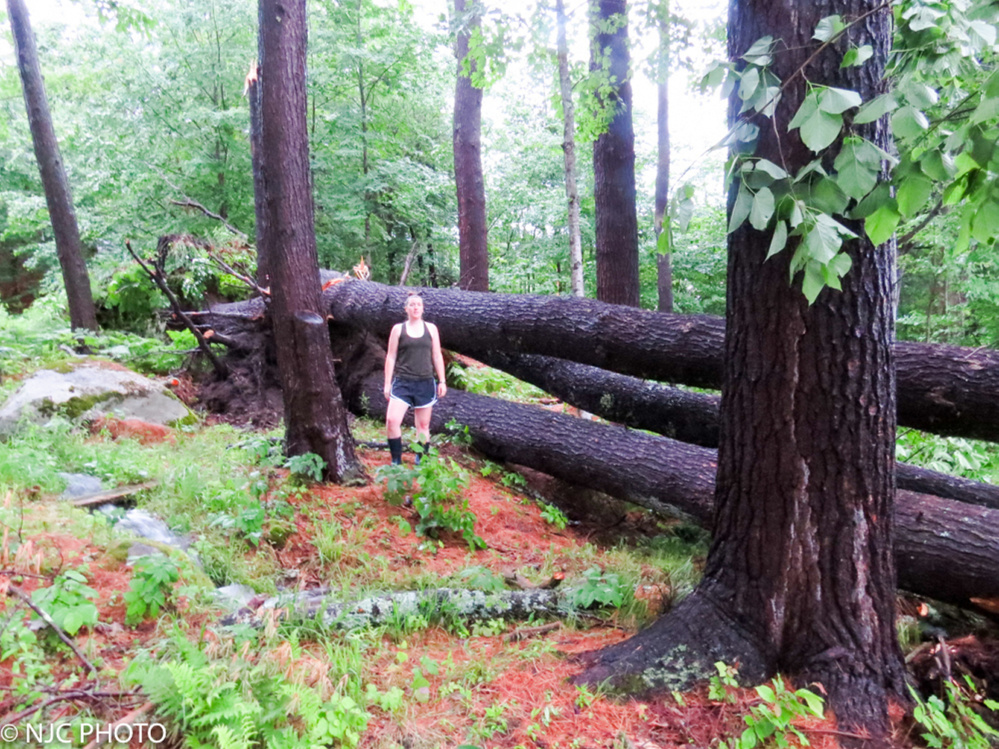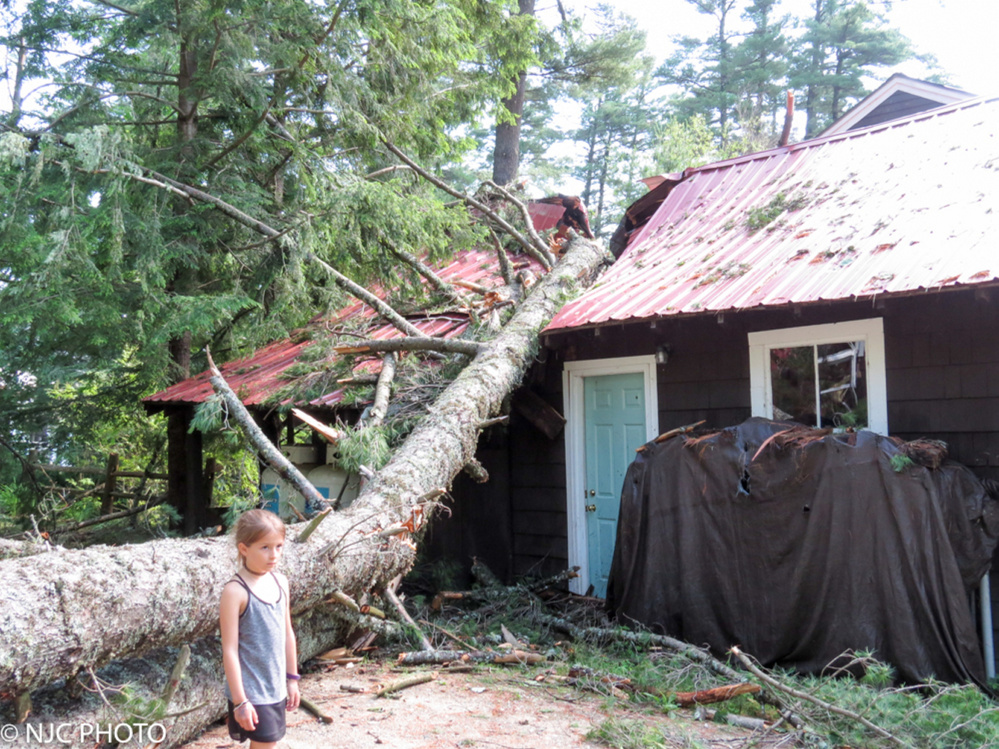The National Weather Service in Gray confirmed Sunday that three tornadoes, and possibly a fourth, touched down Saturday in western Maine, causing extensive damage to homes and boats in Denmark, forcing the evacuation of a campground in Bridgton, and knocking out power to thousands of homes.
The weather service is also investigating whether two separate tornadoes touched down in New Hampshire during the same period – late Saturday afternoon and early Saturday evening.
Despite the destruction the tornadoes caused in Maine, no injuries were reported.
A survey team from the weather service confirmed that a tornado touched down on the western shore of Sebago Lake around 2:30 p.m. Saturday. That tornado, not a very strong one, caused minimal damage over land, but photographs taken by the public revealed a well-formed waterspout on the lake.
A second tornado touched down on the southeast corner of Highland Lake in Bridgton before moving onshore, where it snapped and uprooted several large trees that fell onto structures and vehicles. The tornado lifted off the ground before setting down again on the west shore of Long Lake in Bridgton in the vicinity of Obelazy Lane, where it ripped through an RV campground.
The Long Lake tornado was rated as a EF1, packing winds up to 110 mph.
Chris Kimble, a meteorologist with the weather service, confirmed late Sunday that a third tornado touched down on Shawnee Peak, a ski resort in Bridgton. The tornado downed trees on Shawnee Peak before traveling across Moose Pond to the Route 302 causeway.
In addition to Bridgton, Saturday’s wild and unusual weather hit the town of Denmark, in Oxford County, especially hard.
A fourth suspected tornado on Moose Pond in Denmark caused trees to fall on cabins, docks and boats – and in one instance, a giant tree pierced the roof of a cottage off Mountain Road. Kimble, who inspected the damage on Mountain Road, had not yet confirmed Sunday night that it was in fact a tornado.
“It was really crazy,” said Nancy Campbell of Denmark. Her family had gathered at her home on Trail Circle, which is off Mountain Road, to celebrate the July Fourth holiday weekend, when the storm roared over Pleasant Mountain and touched down on the pond.
An offshore swimming float was bobbing up and down, at times rising more than 10 feet off the surface, as powerful winds blew through, Campbell said. A tree fell on Campbell’s dock and destroyed her motorboat.
Campbell’s family and guests sought shelter in the basement of their home, which was not damaged. Campbell said the storm sounded like a freight train rampaging through the neighborhood.
“The trees were falling like dominoes or toothpicks, and these trees are huge trees,” Campbell recalled. “It was a little frightening.”
Giant pine trees, estimated to be 100 feet tall, fell in the strong winds, crushing camps, cabins and in one instance a tree speared the roof of a boathouse. Campbell took photographs of the destruction after the storm had passed. The property of her next-door neighbors, who were not at home, sustained extensive damage to cabins and a boat house.
CHAOTIC SCENE IN BRIDGTON
Bridgton police Officer Josh Muise described the scene in that town as chaotic. Muise said people became trapped in their homes and campers when falling trees blocked exits. Hundreds of homes lost power.
“There was an RV park on Long Lake that was pretty much flattened and had to be evacuated,” Muise said. Campers at the Bridgton Marina RV park on Long Lake were relocated to a temporary emergency shelter at the Stevens Brook Elementary School, he said.
On Sunday, Kimble said he is fairly certain the damage on Moose Pond was caused by a tornado, but he was not prepared to say for certain.
He also went to Conway, New Hampshire, which is part of his agency’s territory, and determined that damage there was caused by straight-line winds that reached speeds up to 85 mph on a half-mile-long path.
A fifth tornado may have touched down in a remote, forested area of Waterville Valley in New Hampshire, but could not be confirmed Sunday, Kimble said.
“We don’t get these kind of severe storms in Maine very often,” Kimble said. “On average, we get two tornadoes a year in Maine.”
The weather service said the weakest tornado was confirmed on the western shore of Sebago Lake in Sebago near West Shore and Oak roads. The tornado cut a 50-foot path at its widest and traveled 1.9 miles. It was the weakest category of a tornado with winds between 65 to 70 mph. Tornado winds can reach 200 mph or more.
“While there was minimal damage found over land, the combination of eyewitness reports, pictures and video showing a well-developed waterspout just off the shore of East Sebago confirm a tornado,” the weather service posted on its Facebook page.
The weather service said the Sebago Lake tornado flipped a pontoon boat over and caused minor damage to some fencing. The damage was likely caused by inflow winds that were blowing toward the descending funnel cloud, the service said.
A possible tornado in Otisfield turned out to be straight-line winds with speeds estimated at 70 mph, said Tom Hawley, another meteorologist at the weather service. He said those winds heavily damaged areas near Bolsters Mills, Bell Hill, Peaco Hill and Rayville roads.
Hawley said meteorologists look at the damage patterns to determine if they were made by a tornado.
“The trees will be crisscrossed, down on one side of the path and down on the other side,” he said.
Hawley said wind speeds can be estimated by the damage to houses and trees.
The weather service office in Gray issued an unprecedented seven tornado warnings Saturday afternoon.
“It has never happened before. We have never issued seven warnings in one year, never mind one day,” he said.
Dennis Hoey can be contacted at 791-6365 or at:
dhoey@pressherald.com
Beth Quimby can be contacted at 791-6363 or at:
Send questions/comments to the editors.


